Autumn is here and the temperatures are dropping, imagine the white shards falling off your shoulders when you put on a black sweater. Yes, dandruff can be annoying no matter the season. This condition is common, but also difficult to treat. If you’re battling dandruff, you might be wondering: what causes it? How can I get rid of it? Are there any effective remedies? Here are some tips and tricks on how to tackle your dandruff problem—keep reading.
What Exactly Is Dandruff?
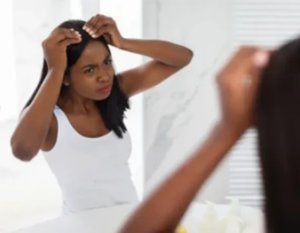
You may have seen dandruff on your scalp before, but you may not know what it is. Dandruff is more of a layman’s term for the medical diagnosis of mild seborrheic dermatitis. These two words can be used interchangeably.
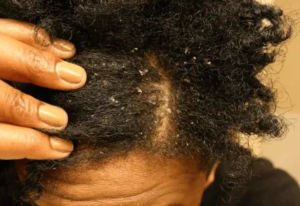
While you might associate dandruff flakes with your scalp, they can also appear on your face, nose, ears, eyebrows, eyelids, and chest. Still, the result was the same: the scalp was flaky and sometimes itchy, causing discomfort. Although it is common, many people feel insecure and embarrassed about their dandruff.
What May Cause Dandruff?
Doctors aren’t entirely sure what causes seborrheic dermatitis, but they suspect there are some underlying causes. Because these flakes may be the result of an irregular immune response.
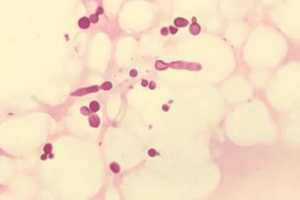
They can also come from your body overproducing too much Malassezia, a yeast that lives in the oily secretions of the skin and likes the warmth and moisture of the scalp under the hair. It grows there and triggers an inflammatory response. This is what causes itchy scalp, scalp inflammation, scalp redness, and dandruff scaling.
Other than that, what you have to know is that if you have mild itching and flaking, it may not be dandruff at all. Allergic contact dermatitis can also give you a scaly, itchy rash on your scalp. Also, conditions such as scalp eczema and psoriasis are often mistaken for dandruff.
How To Get Rid Of Dandruff?
1. Wash your hair more often
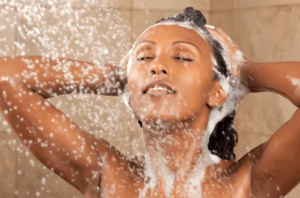
Now there’s the notion that you need to let the natural oils stay on your scalp longer, but that can cause problems. Because when there is more oil on the skin, yeast levels rise. Oil and dead skin cells can accumulate further due to infrequent shampooing. People who are prone to dandruff or seborrheic dermatitis should regularly wash their hair at least several times a week to reduce build-up.
2. Improve your diet

Malnutrition is likely to cause dandruff. Foods high in carbohydrates can lead to a buildup of glycogen in the skin, which yeast feeds on. Plus, the same foods that promote acne may exacerbate dandruff. Sugary foods and dairy products stimulate the sebaceous glands, which produce more oil on the skin. So, if you’re prone to dandruff, you may want to try cutting back on carbs and sugar.
3. Try exfoliating your scalp
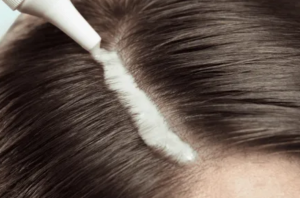
Exfoliate your scalp just as you exfoliate your skin to gently lift the top layers of dry skin. Scalp exfoliants typically use small amounts of salicylic acid (more commonly found in acne products) or dissolved particles to exfoliate dead skin. Of these, the latter is very helpful in breaking down dead skin cells that build up on the scalp and cause flaking.
We recommend that you use the exfoliating scrub on your wet shampoo twice a week and make sure to read the directions so you can leave it on your hair for the proper amount of time.
4. Try a hot oil mask
Oil-based treatments can help balance some scalp’s excess oil production, and applying oil to the scalp will help draw oil from the scalp and remove it. This is the classic law of attraction, similar substances attract each other.
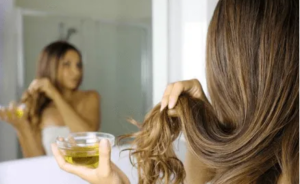
You can try heating coconut oil in the microwave and gently rubbing it on your head. Be careful not to let the oil get too hot, as doing so increases the risk of burning your scalp. But it’s not a panacea. While this method helps fight dryness, hot oil therapy alone will not treat dandruff caused by fungal growth.
5. Use apple cider vinegar with caution
Some hair care experts recommend apple cider vinegar as a base for home remedies and many products, including toners, hot water balms, and dandruff treatments.

Dermatologists are somewhat divided, and apple cider vinegar has antimicrobial and anti-inflammatory properties that can reduce yeast levels on the skin and relieve inflammation. If you have mild dandruff, we recommend mixing 1/2 cup apple cider vinegar with 1/2 cup cold water. Pour the mixture over your hair in the shower after shampooing and rinsing.
6. Add some tea tree oil
Historically, tea tree oil has been used to treat conditions such as acne and psoriasis. It has also been shown to have powerful antibacterial and anti-inflammatory properties that may help relieve dandruff symptoms.
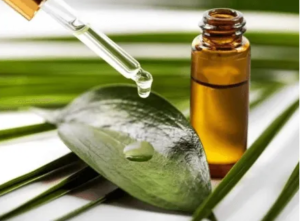
In fact, according to an earlier article, tea tree oil is effective against specific fungal strains that can cause seborrheic dermatitis and dandruff. Another study found that applying placental tissue soaked in tea tree oil to the skin was more effective than prescription antifungal medication for damage caused by the fungus.
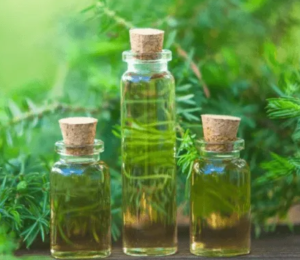
Still, tea tree oil may irritate people with sensitive skin. Therefore, it is best to dilute it with a few drops of carrier oil like coconut oil before applying it directly to the skin.
7. Only wash the scalp
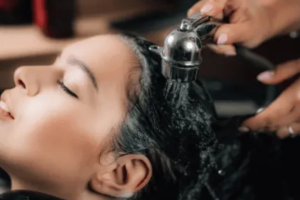
Unfortunately, in addition to dandruff, dandruff shampoos can dry out the hair. To make sure this doesn’t happen, you should only apply your special shampoo to the scalp. These shampoos and conditioners should be applied directly to the scalp (not the hair), massaging gently for at least five minutes between each application. Make sure you do it for no less than five minutes to give the active ingredients time to work.
8. Do not scratch the hair and scalp
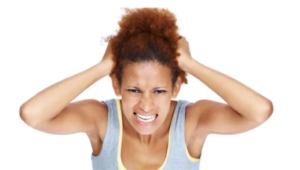
This is a tough question to tolerate, but try not to scratch your head. Dandruff is itchy, but scratching can increase inflammation and irritation. Especially if your nails are long and pointy, scratching can lead to open wounds on the scalp that can lead to infection. We recommend only a gentle massage to allow the ingredients of the hair care product to penetrate the scalp.
FAQs About Dandruff
1. Can you get rid of dandruff permanently?
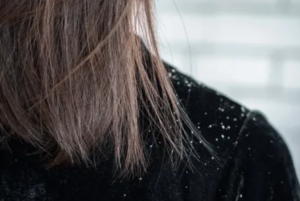
While dandruff is a chronic condition (meaning it cannot be “cured” permanently), it can be easily treated with home remedies or prescriptions.
2. Can wet hair cause dandruff?

While it’s important to wash your hair frequently when you have dandruff, make sure your hair is at least a little dry before you want to rest or sleep. Sleeping on wet hair increases your risk of infections, including fungal infections like Malassezia folliculitis that cause dandruff.
Conclusion

Although dandruff can be a difficult problem to deal with, various natural remedies can reduce symptoms and relieve them. If the above treatments and suggestions do not work, please consult your dermatologist promptly to see if other treatment options are needed to provide lasting relief. If you have any questions, please don’t hesitate to leave a comment below the article, we warmly welcome you!



